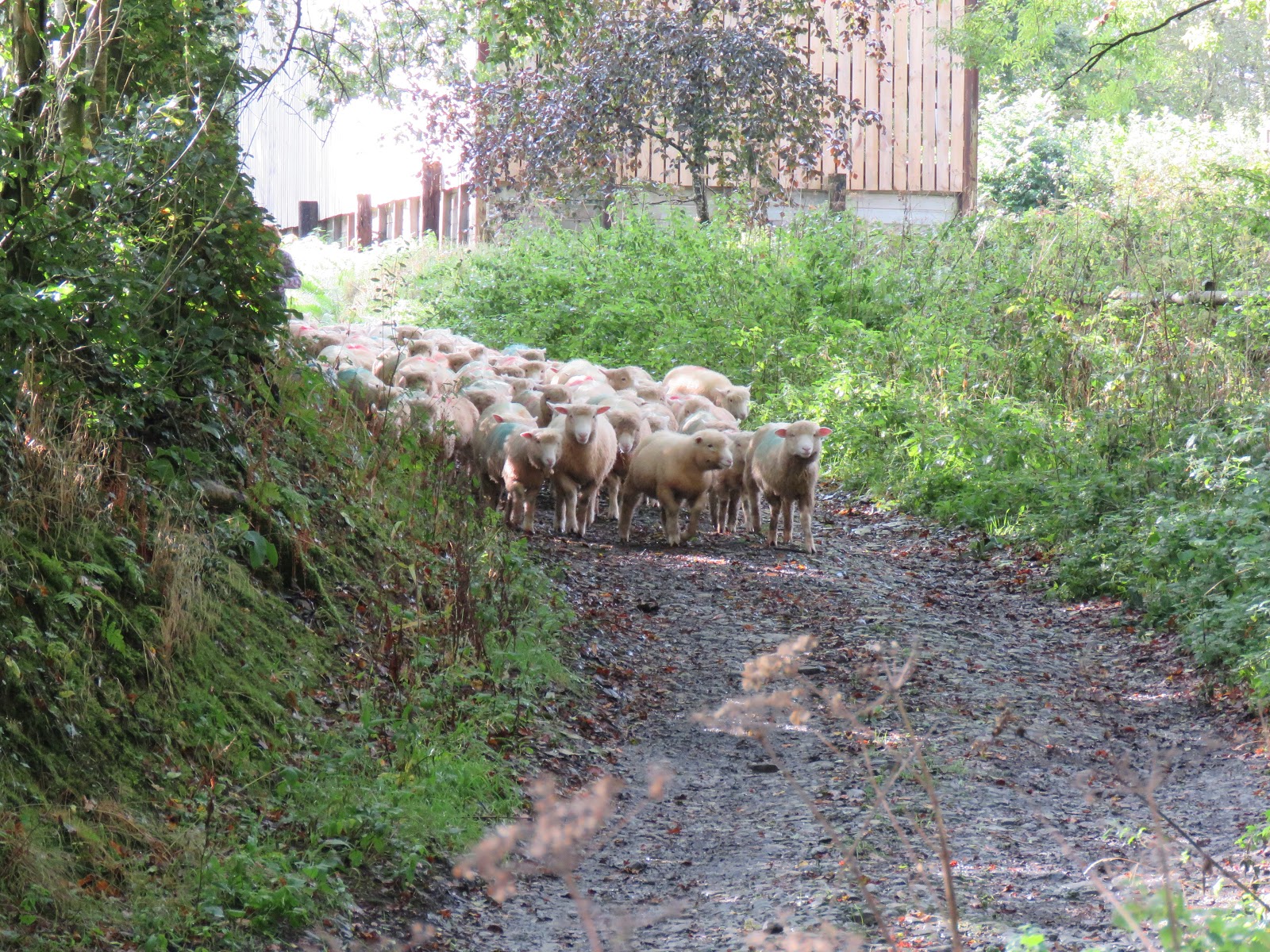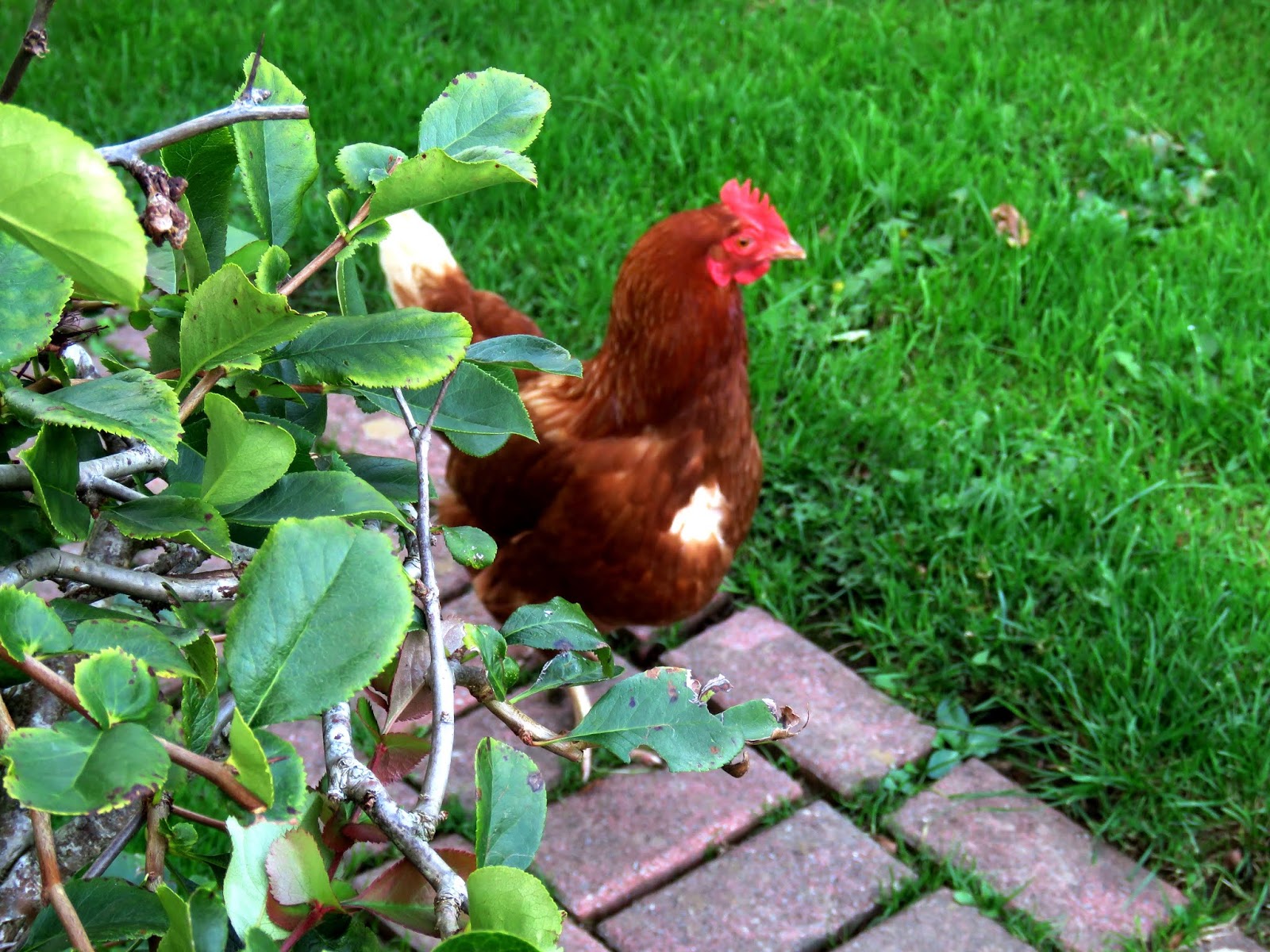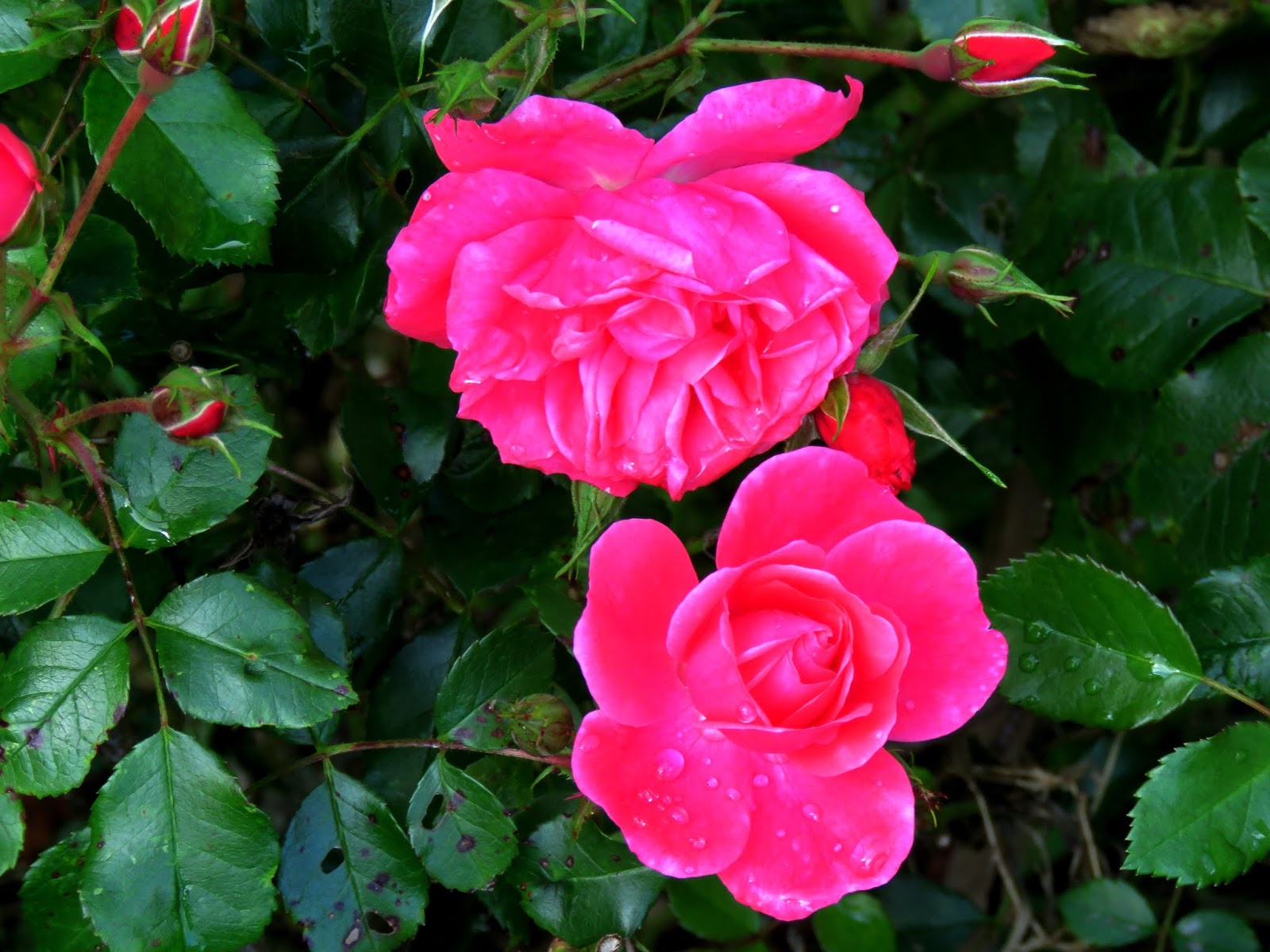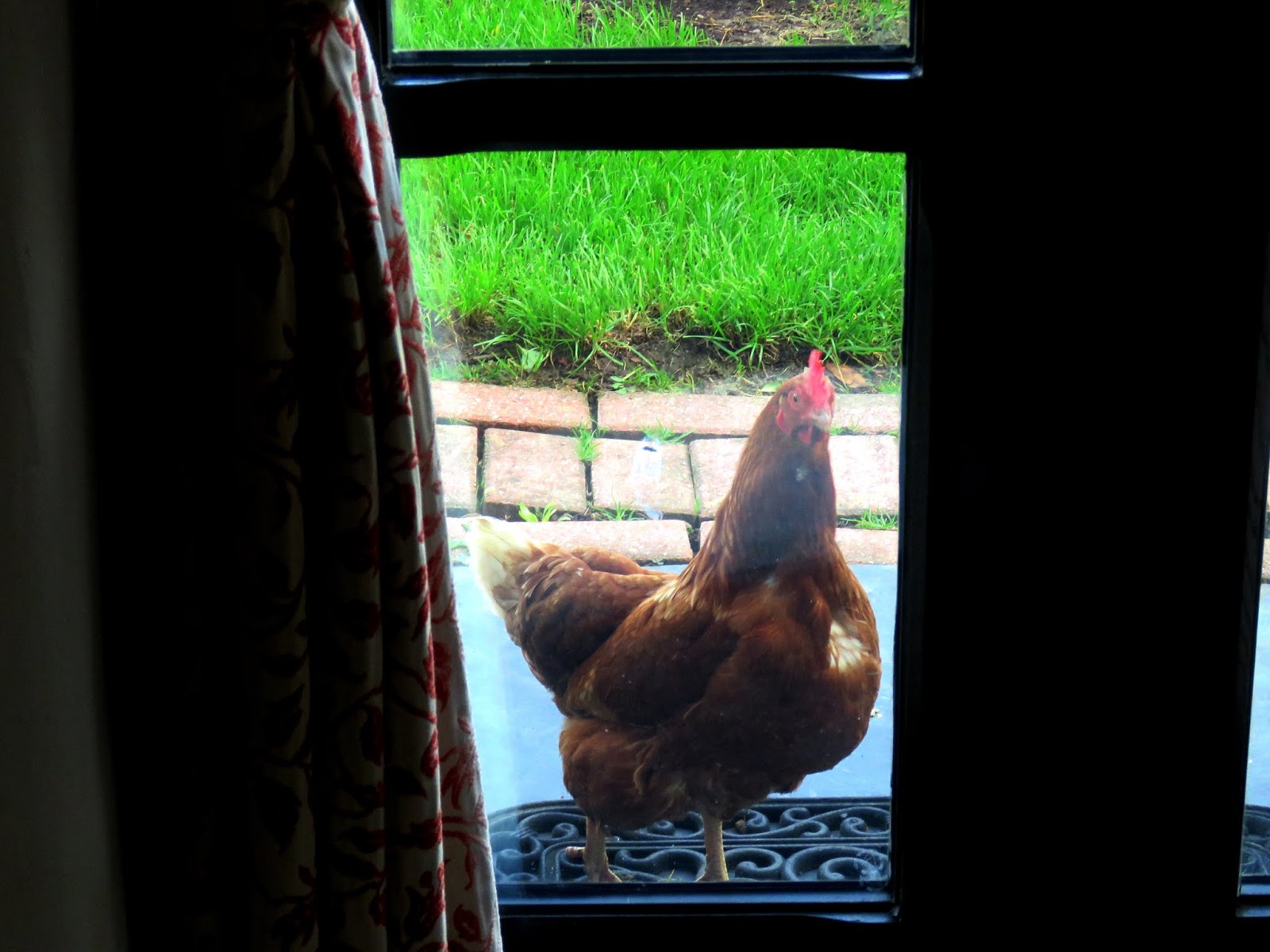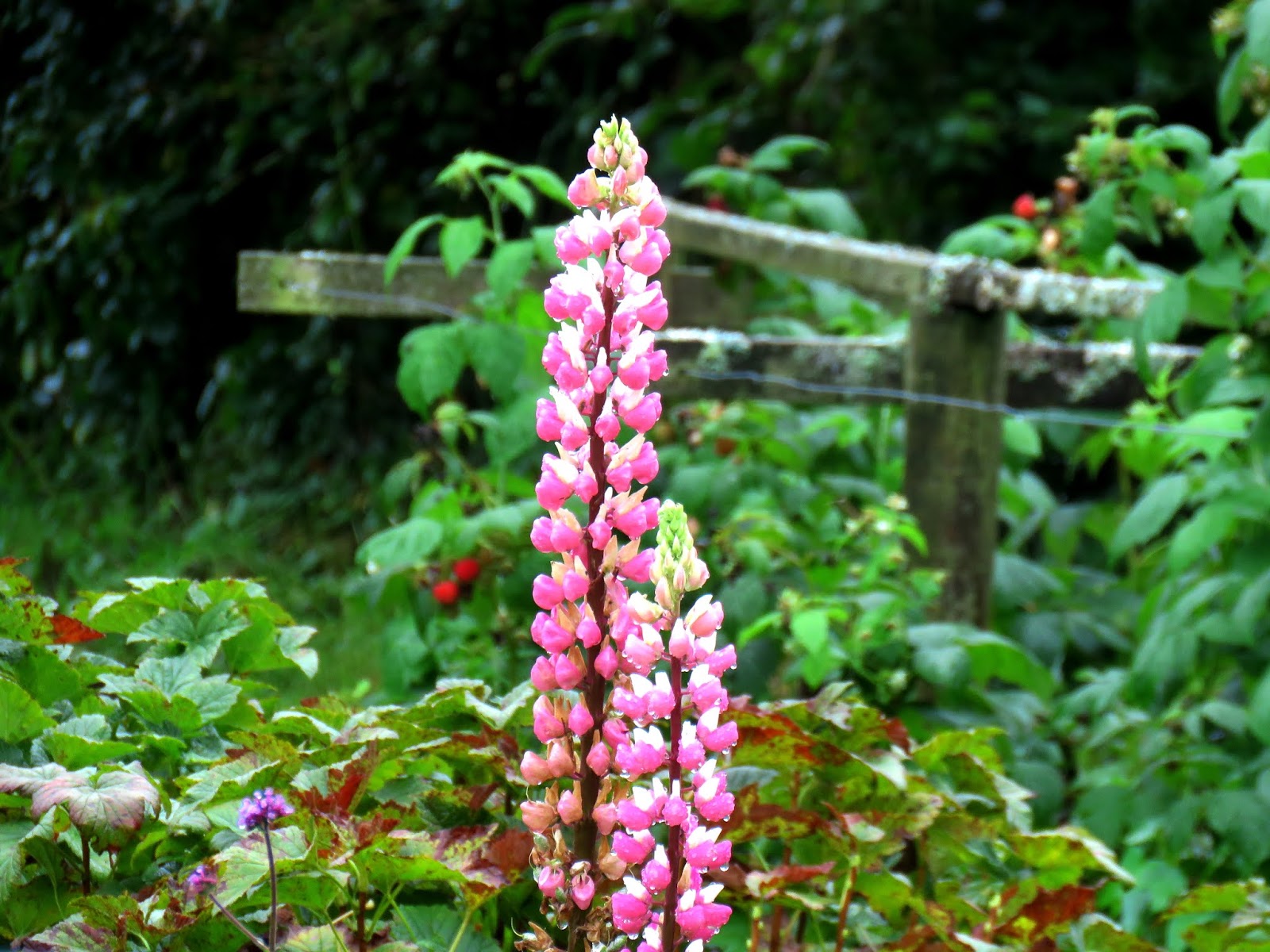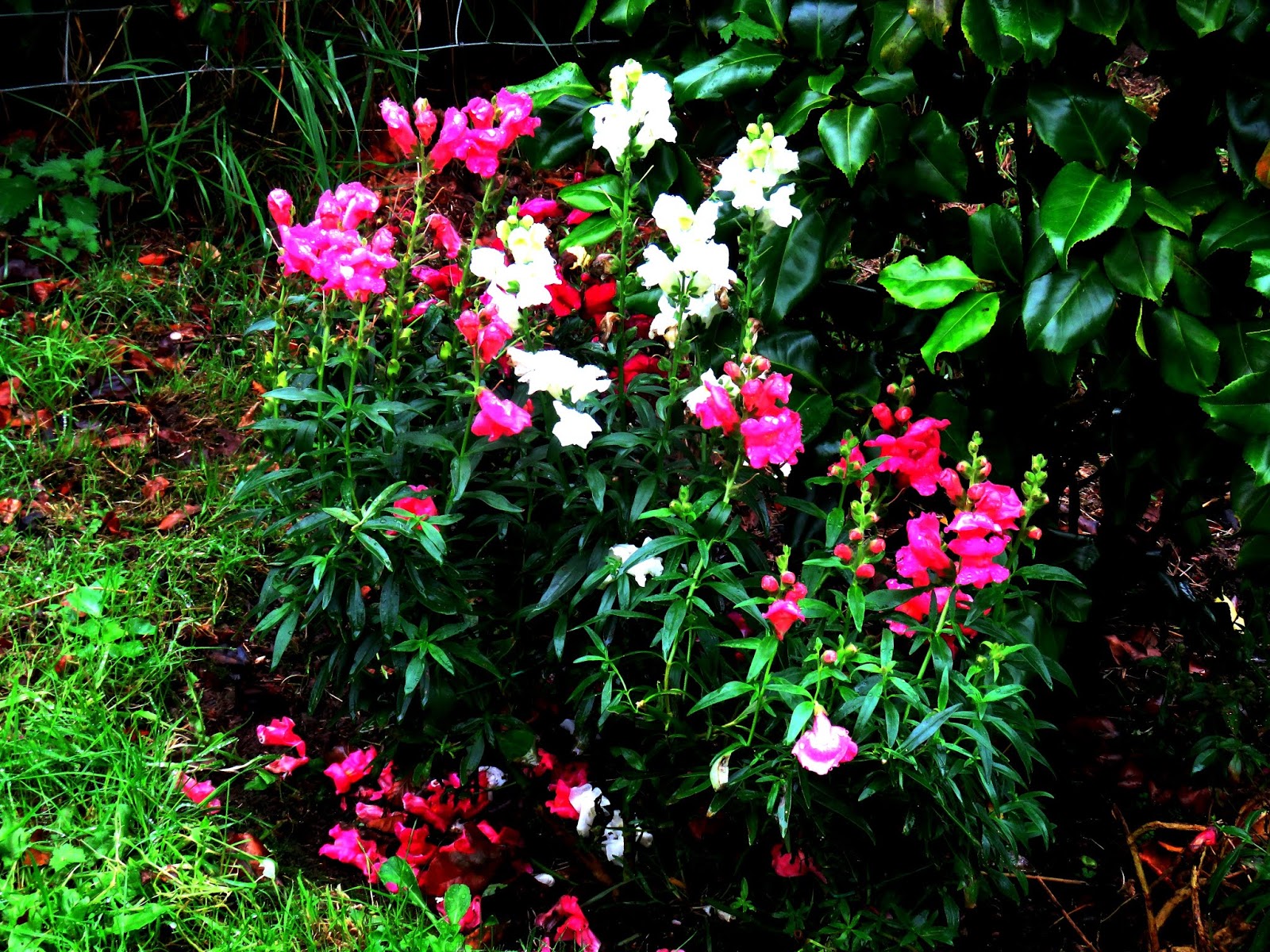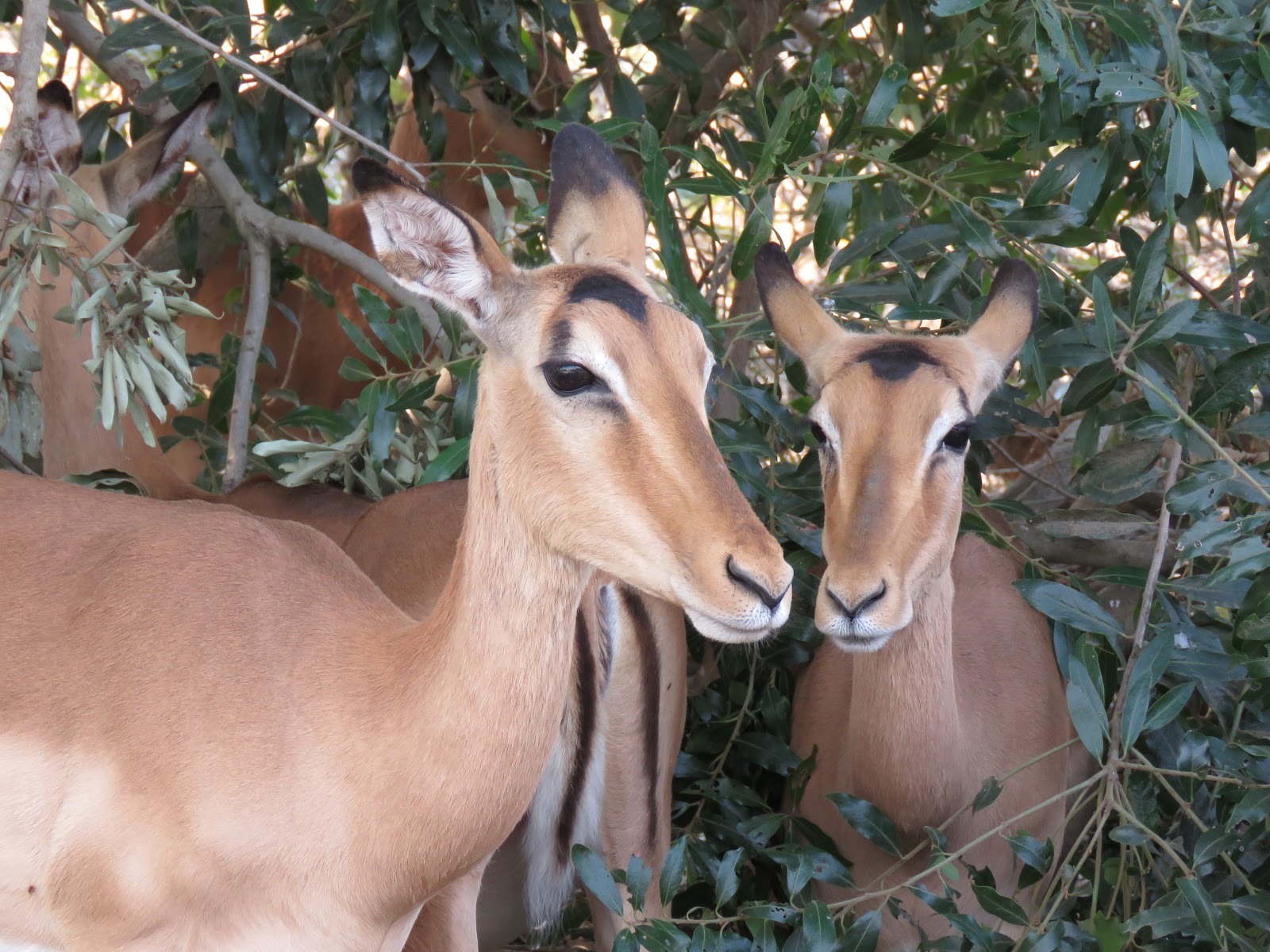Fascinating Fact of the Day about Tiverton:
From this site:
We should clarify a fact I’ve intended to mention during many posts but failed to do so. In England, most cities have a few names. The answer is described more comprehensively than I could have. From this site:
 |
| Note the chicken on the second ladder inside the barn. |
The Local Government Act 1972 allows civil parishes in England and Wales to resolve themselves to be Town Councils, under section (245 subsections 6), giving the chairman of such parishes the title ‘town mayor.’ Many former urban districts and municipal boroughs have such status and other settlements with no prior town status.
In more modern times, it is often considered that a town becomes a city (or a village becomes a town) as soon as it reaches a specific population. However, this is an informal definition, and no particular numbers are agreed upon.
 |
| A young apple tree produced its first bright red apple. |
The cultural importance placed on charters remains, and it is not an unusual event for towns across the UK to celebrate their charter in an annual Charter Day (normally a fair or medieval market).”
Black-eyed Susans. As a result, we are located in Witheridge, Tiverton, Devon, which is comparable to listing a village, a town, a city, and a county. When we mention any of these areas, they each have it’s own “downtown” or High Street, as explained below at this site:
 |
“High Street (or the High Street, also High Road) is a metonym for the concept (and frequently the street name) of the primary business street of towns or cities, especially in the United Kingdom and Commonwealth of Nations. To distinguish it from “centres” of nearby places, it is frequently preceded unofficially by the name of its settlement.
It implies the focal point for business in a town, especially shops and street stalls (if any) in town and city centres. As a generic shorthand presupposed upon linear settlements, it may denote more precise concepts such as the urban retail sector, town centre sectors of employment, all small shops and services outlets, and even broader concepts taking in social concepts.
 |
| This may be Common Montbretia. |
High Street is the most common street name in the UK, which according to a 2009 statistical compilation, has 5,410 High Streets, 3,811 Station Roads, and 2,702 Main Streets. The smallest High Street in Britain is located in the small market town of Holsworthy in Devon. The street itself is no more than 100 yards (100 m) long and consists of only three shops.”
 |
| Zucchini, aka Courgettes in many parts of the world. |
As for the other “mention” in today’s heading, here’s how the story goes: Yesterday afternoon, we wandered over to the paddock closest to Pond Cottage to greet the sheep and to feed them some of the small pellets Renate had left for us, along with different smaller pellets for the ducks, geese, and chickens.
 |
| Unable to identify these purplish flowers. |
No, feeding the feathered friends and the sheep is not quite as exciting and eventful as providing 25 kudus, eight zebra,s, and six warthogs and babies, standing at the edge of the veranda.
We make the most of every possible animal interaction regardless of where we may be living at any given time and haven’t been disappointed. But, yesterday was unique in that we were feeding animals face to face standing at our feet.
In Marloth Park, the wildlife was just that…wild, requiring a reasonable distance for safety reasons. Many tourists had been injured over the years when approaching the wild animals, which, unlike domestic animals, can quickly turn from friendly to dangerous, especially when competing for food.
 |
| The bright green vegetables appear to be butter lettuce but are overly ripe and too late for the picking. |
I was busy taking photos while attempting to feed them with my other hand. Suddenly, a sheep decided to walk from behind me between my legs to the other side. Go figure. My stance was a little wide while standing in the tall grass to balance myself, which was uneven and highly wet from days and days of rain.
This all happened so quickly I had no chance to further steady myself. I’ve never had a sheep or other animal walk between my legs. I tumbled and hit the ground. Luckily, for a few things, the ground was mushy and soft, and two, my sternum has wholly healed (although still painful to the touch and when I move specific ways).
 |
| A goose with a knot on her head. |
I wasn’t injured but wondered if I’d be stiff today. Good grief! I awoke this morning feeling as good as I’ve felt each day over this past blissful month…free of pain, stiffness, and discomfort. This won’t deter us from revisiting the sheep before we depart the farm in five days. Next time, I’ll keep my legs together and be more cautious.
Today’s above video was taken around 6 pm last evening when Allison, the temporary farm helper here twice a day while John and Renate are away, knocked on our door when we’d asked her to let us know when she’d be guiding the chickens into the barn.
 |
| It was the wide sheep on the right that caused me to topple. |
That’s it for today, folks. Enjoy your Sunday!
 |
| At first, we spotted this warthog sitting in the cement pond. By the time I grabbed the camera, he’d already begun to climb out. For more photos, please click here. |






































